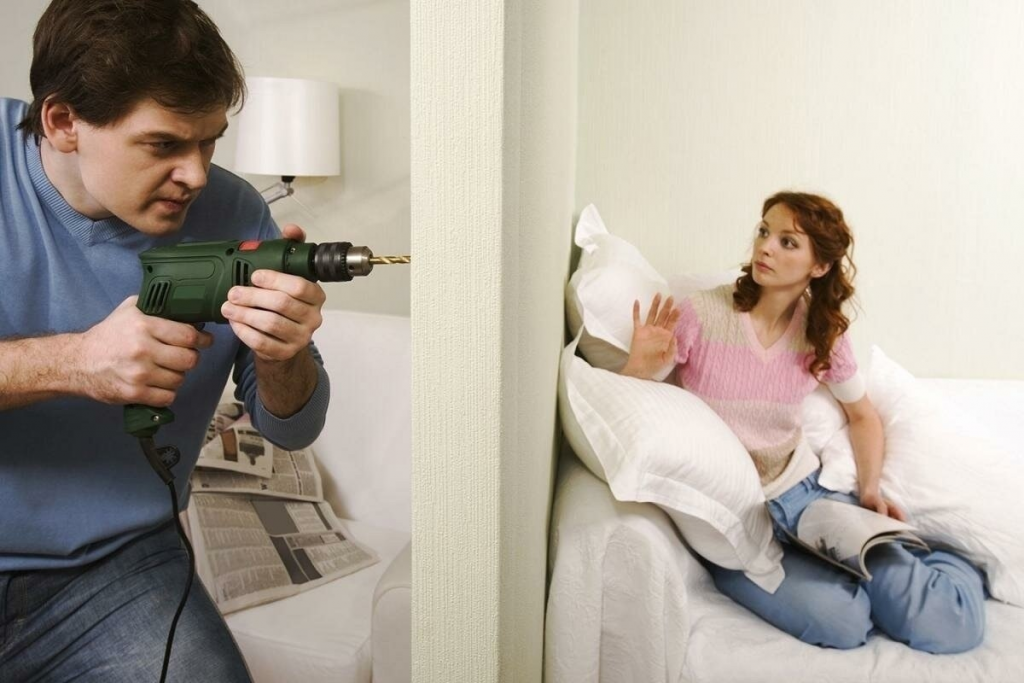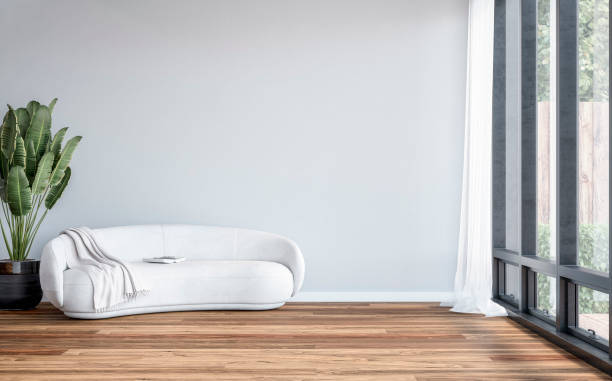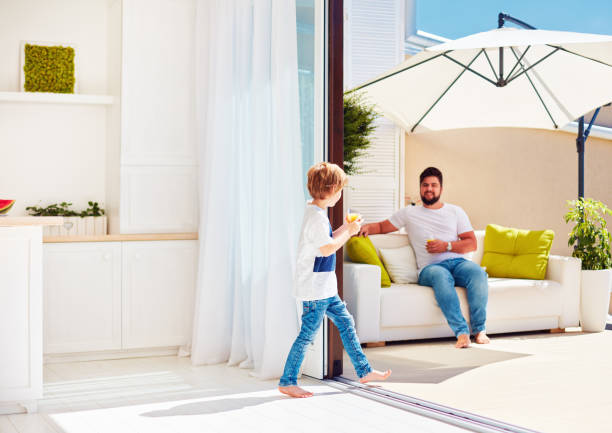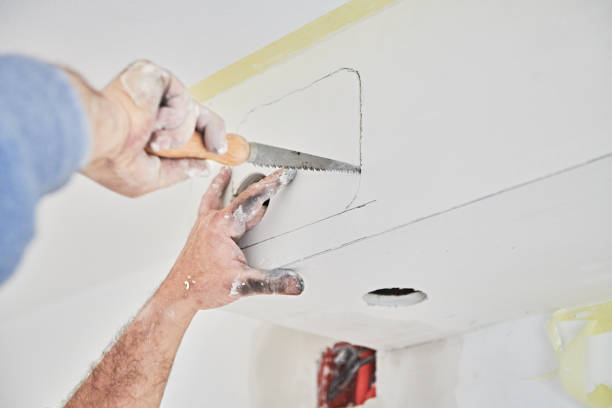
Struggling with outside noises can be a daily nuisance, but fortunately, there are effective ways to block outside noise and create a calmer living space. Regardless of whether you’re dealing with loud neighbors, traffic noise, or other unwanted sounds, soundproofing your home can provide relief and tranquility. From quick fixes to more substantial interventions, this article will guide you through the steps to reduce noise levels and shield your house from the cacophony of the outside world. In adopting these strategies, you can enjoy a quieter home environment, significantly improving your quality of life and well-being.
Understanding Soundproofing Basics
Soundproofing is essential when it comes to reducing noise in your living space. It’s important to understand that blocking sound is different from absorbing it. Soundproofing materials work by either deflecting noise away from your home or by dampening sound vibrations to minimize noise transmission—both are vital in providing better acoustics within your rooms. Decibels (dB), Sound Transmission Class (STC) ratings, and frequency ranges are key terms when considering various soundproofing solutions. These concepts help you determine how well a material or structure will work in your individual situation.

Quick Fixes to Reduce External Noise
The first approach in reducing outside noise from entering your home should lie in ensuring that there are no air gaps through which sound waves can travel. Sealing doors and windows is one of the most effective and least invasive methods to help keep out any annoying sounds. Weather stripping and draft stoppers can be easily applied to create a firmer seal, while acoustic seals offer an even more specialized solution for reducing noise leakage.
Utilizing Curtains and Window Treatments
Heavy curtains, often referred to as soundproofing curtains, can effectively block noises coming into a room from outside, serving as a barrier against external disturbances. Utilizing specialized window treatments that feature heavy materials adds an extra layer of noise reductioning. When considering soundproofing curtains, ensure that they are properly installed to cover the entire window for maximum effectiveness.
Long-Term Solutions for a Quieter Home
Improving the insulation within your walls is a more substantial approach to reducing noise, but it can significantly help minimize how much sound enters your living space. There are various types of soundproofing insulation specifically designed for this purpose, with materials such as acoustic foams and fiberglass batts being popular choices. Although it might take more effort and resources, the impact on noise reduction can make it a worthwhile investment.
Upgrading to Soundproof Windows
For those willing to invest in long-term noise reduction, upgrading to soundproof windows might be the ideal option. These specialized windows are constructed with multiple panes and added insulation to prevent noise transmission. They are particularly effective in blocking road noises and other unwanted sounds from busy streets, making them an attractive solution for many urban dwellers.

Advanced Noise Blocking Techniques
Particularly in rooms with a lot of reflective surfaces, acoustic panels and tiles can help dampen sound vibrations and prevent echoes. They work by absorbing sounds that would otherwise bounce around the room, and are a great option for spaces like home theaters or studio rooms. Acoustic panels come in a variety of sizes and designs and can be placed strategically around the room for optimal effectiveness.
Incorporating Soundproof Flooring
Flooring plays an important role in sound transmission, and installing soundproofing materials on floors can significantly cut down on noise from below or within a room. Options like acoustic underlayment, thick carpets, or interlocking floor mats not only help reduce the noise but can also provide a plush feel underfoot. Placing heavy rugs over your existing flooring might be another efficient way to add a layer of sound absorption without completely redoing your floors.
Technological Aids to Drown Out External Noise
When it comes to masking unwanted noises, white noise machines can be remarkably effective. These devices produce a consistent ambient sound, which helps obscure intermittent noises that can disturb sleep or concentration. Not only does the sound create a more consistent acoustic environment, but it can also aid in relaxation and stress relief.
Landscaping as a Natural Sound Barrier
Landscaping can play a significant role in reducing traffic noise and other disturbing sounds from outside your home. Plants and trees can act as natural sound barriers, absorbing and deflecting noise before it reaches your indoor living spaces. Dense foliage and strategically placed shrubberies can make a noticeable difference in the soundscape of your property. Here is where considering the types of plants becomes crucial to creating an effective noise buffer zone.

Conclusion
Ultimately, there are numerous ways to effectively block outside noise and reduce the intrusion of unwanted sounds into your peaceful abode. From simple window treatments to more comprehensive structural modifications, incorporating the right soundproofing solutions can transform your home into the serene sanctuary you desire. While not all methods will completely block out noise, combining several strategies will yield the most effective noise reduction to help you achieve quieter living spaces.
FAQs
- Can I soundproof my home without major renovations?
Yes, there are less invasive methods such as using draft stoppers, applying sealants, or hanging heavy soundproofing curtains to reduce noise levels. These quick fixes are simple yet can be quite effective at minimizing unwanted sounds. - How effective are white noise machines at blocking outside noise?
White noise machines do not block noise per se but can mask it effectively, helping to maintain a constant sound level that drowns out the variability of noises from outside. This consistency can greatly help in improving sleep quality and maintaining focus. - Do plants really help with noise reduction?
Yes, plants, particularly those with dense foliage, can serve as a natural barrier that absorbs and reduces noise. A well-designed landscaping plan acts as a sound buffer, reducing the intrusion of outside noises into your home. - Are there specific window treatments that are best for noise reduction?
Heavy, specialized soundproofing curtains are the most effective window treatment for reducing external noise. They are typically made with dense materials that offer better sound insulation compared to regular curtains. - Is it better to DIY soundproofing projects or hire a professional?
This decision is largely dependent on the nature of the project and personal skills. Simple solutions like applying seals or hanging soundproofing curtains may be easily done without professional help, while installing new windows or insulation might be better handled by experts.


